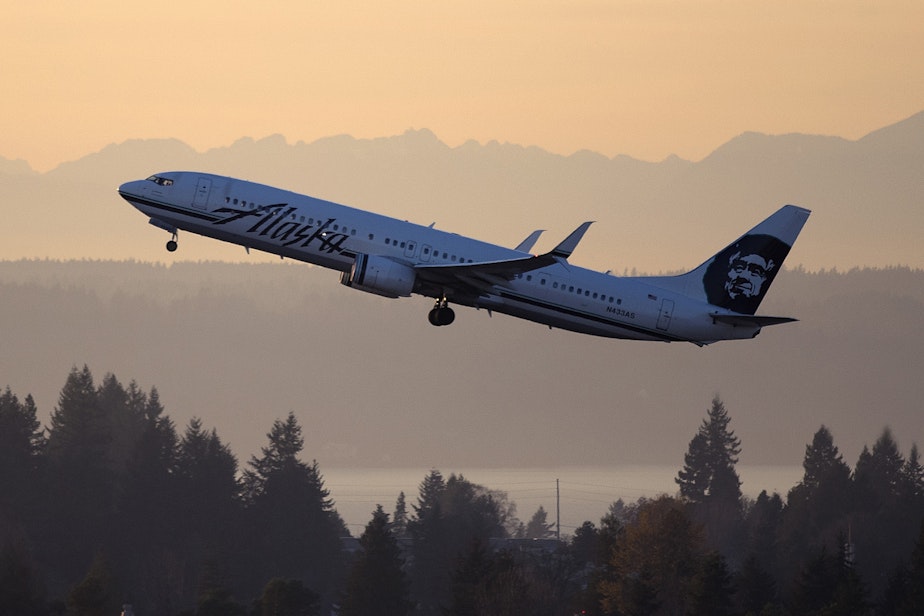Here's what air travel will look like in a world with coronavirus

Airlines flying out of Sea-Tac Airport are starting to require passengers and some personnel to wear masks. But that's not the only way air travel will change during the pandemic.
Delta and United began requiring masks on Monday. Alaska and American will follow on May 11.
Andrew McIntosh covers the aviation industry for the Puget Sound Business Journal. He told KUOW's Angela King about what a flight might be like.
McIntosh: The moment you arrive in the parking lot, they're expecting you to have your masks on, for you and your family if you're traveling with more than one person, and they expect you to keep that mask on as you walk up to the customer service counter to get your boarding pass and check in and drop your luggage. Keep it on as you go through the security process and keep it on all the way through your flight. So you're not going to be seeing those smiling Alaska pilots and flight attendant crews like you normally do or with Delta or anybody else because they'll all be wearing masks.
King: How about social distancing on airplanes? How can you remain socially distant from somebody when you're packed on a plane -- even if the plane isn't packed?
McIntosh: Well, in Alaska's case, our hometown airline, they are taking their smaller aircraft with just two seats per side. And they are basically leaving the aisle seat empty and they're not allowing people to book it if they're booking flights. And for the bigger jets with three seats per side, they are not allowing people to book the middle seats.
Sponsored
This is not a unanimous view in the airline industry. Some European airlines feel that social distancing cannot work because they will not be able to make any money on flights. For instance, if you have a 236-seat, Airbus A330 mid-sized jet or a 787 Dreamliner, six feet distance between each passenger would allow you to put a little over 50 people in each plane, and they need 150 to break even on those flights. So the economics are questionable.
King: The Port of Seattle says it’s taking sanitation very seriously at Sea-Tac Airport. What are they doing there to prevent the spread of the coronavirus?
McIntosh: The airport and the aircraft that you might get into have never been cleaner. I would say they're stepping up the frequency of cleanings, they are doing spot hand washings and disinfection of areas which are typically high touch-point areas for passengers, like bathrooms and gate areas with seats and handles on seats and things like that. Even the shuttle buses are being disinfected, where people might park and grab a shuttle bus go through the gate and get a bus to an airplane.
King: China recently started resuming air travel. What have you noticed about what they're experiencing and how that might impact how the port handles things at Sea-Tac?
McIntosh: The recovery for us will look a lot like what the recovery in China is looking like in terms of the airlines. Domestic travel is resuming and people are flying. They're showing up at the airports with their masks. They are carrying suitcases, they are going through security. There's tons of sanitation going on and disinfection just like the ones I described at Sea-Tac but people are traveling and they're doing so with a certain amount of joy because they've been stuck at home for three months. So it's kind of a hopeful sign that people will want to travel again, when the government feels it's a lot safer for them to do that.
Sponsored
King: Would you feel comfortable flying at this time?
McIntosh: Like I said, I feel airplanes in the airport have never been cleaner. The airlines themselves are fogging the cabins of their aircraft with EPA approved disinfectant and wiping down seat backs, which are notoriously the most common areas for viruses and things like that to congregate. So I would feel safe. I would wear my mask and I would go.




